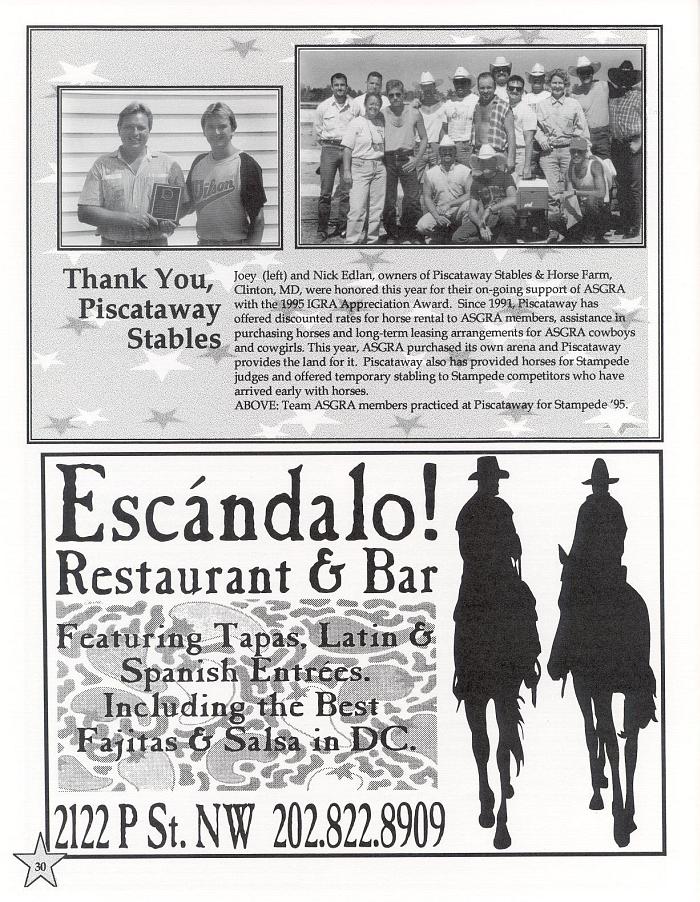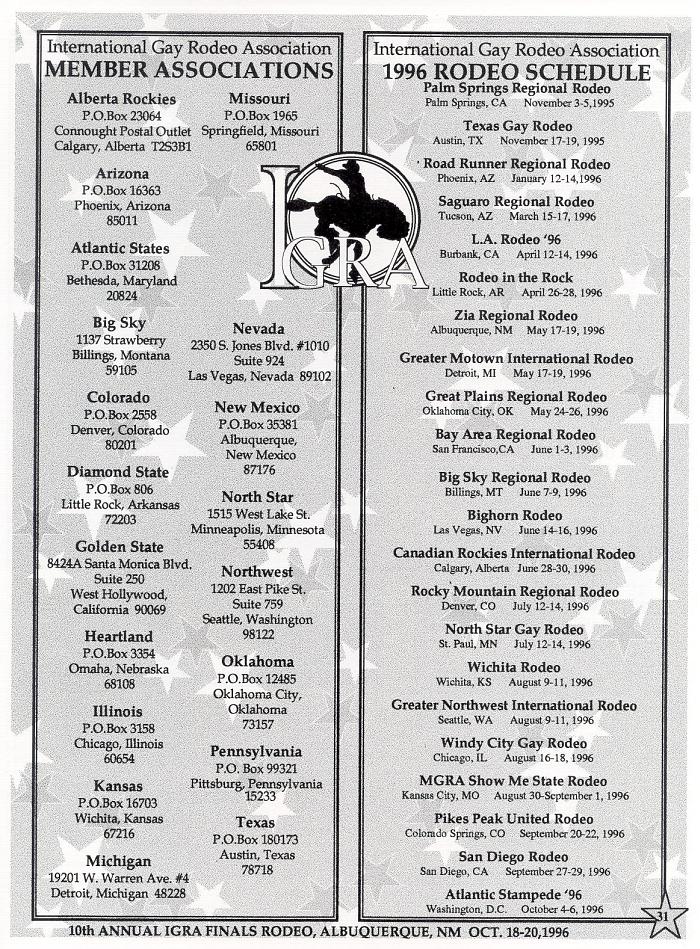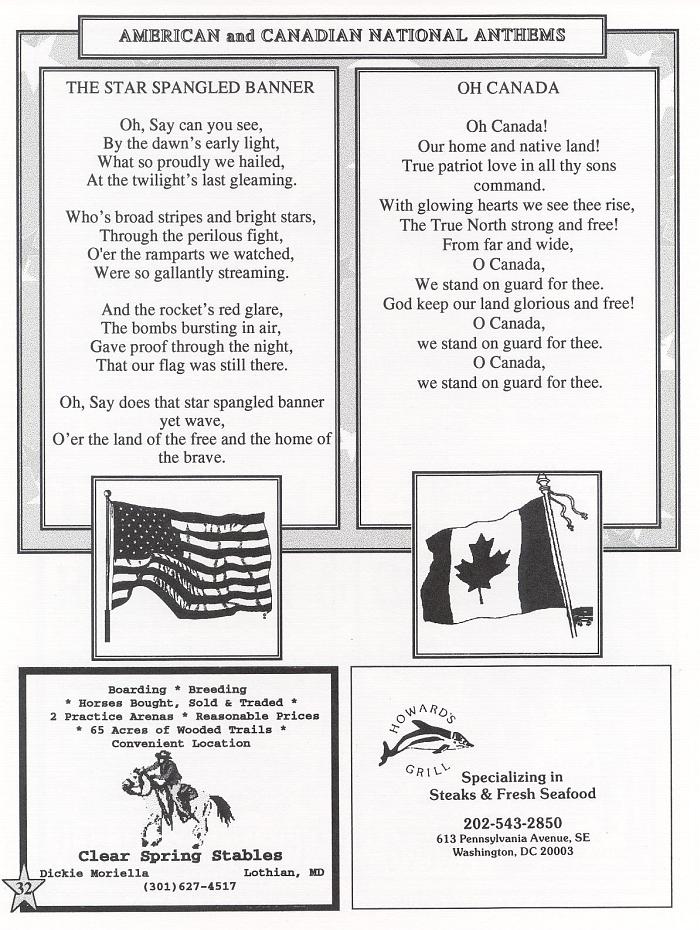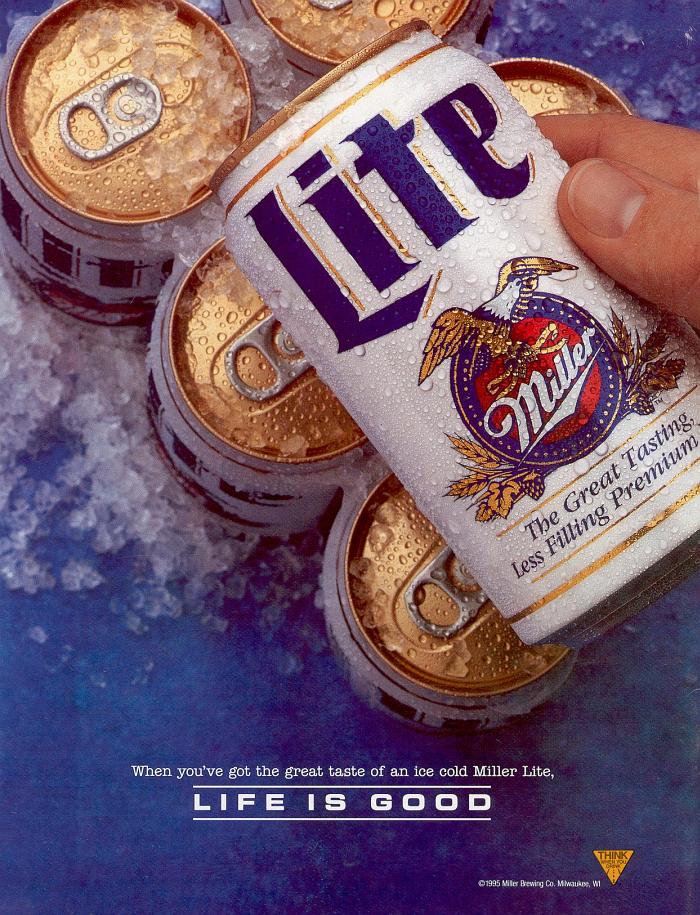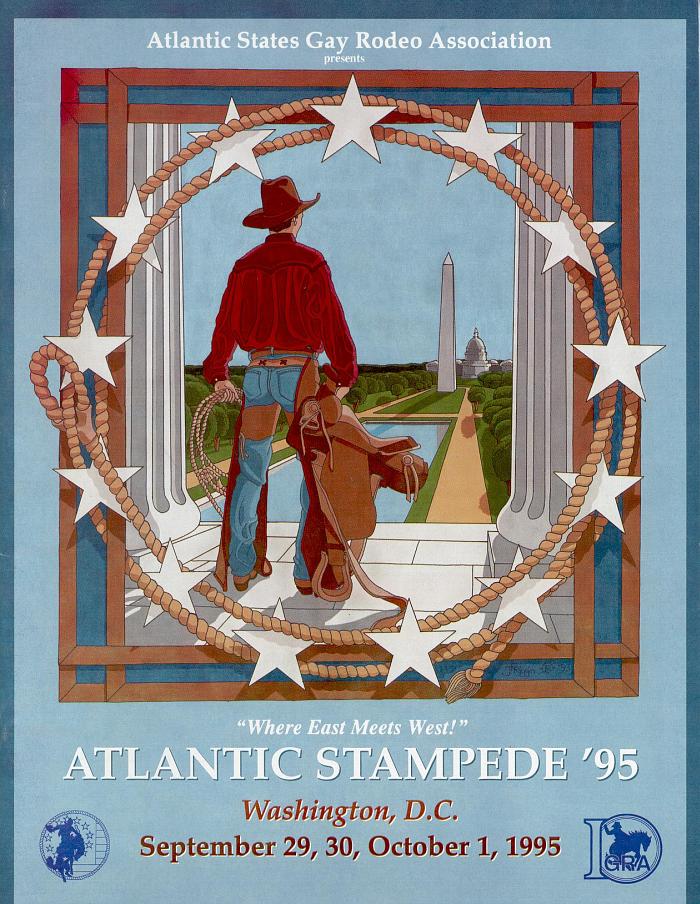
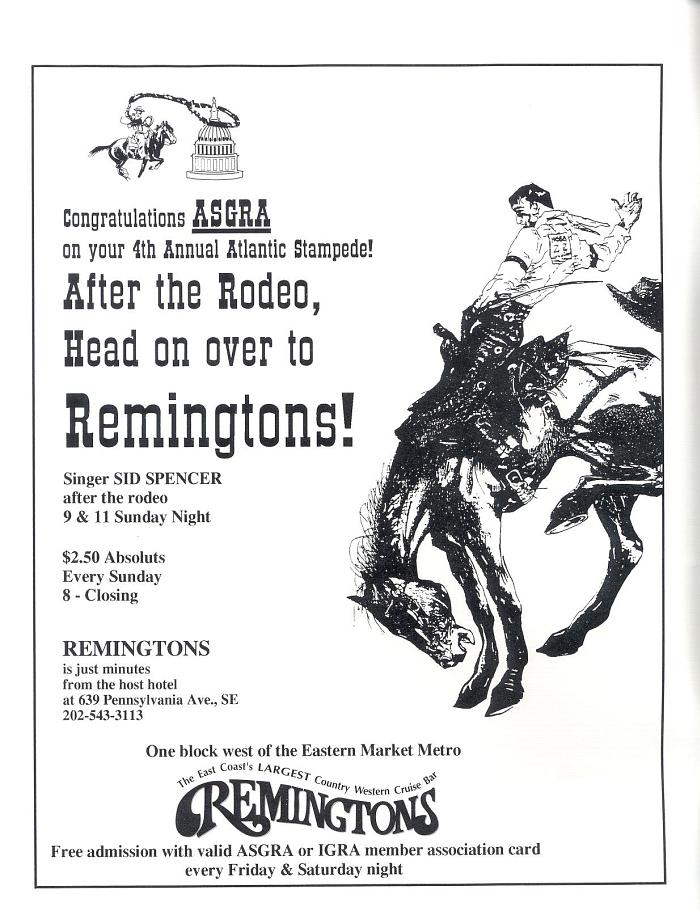
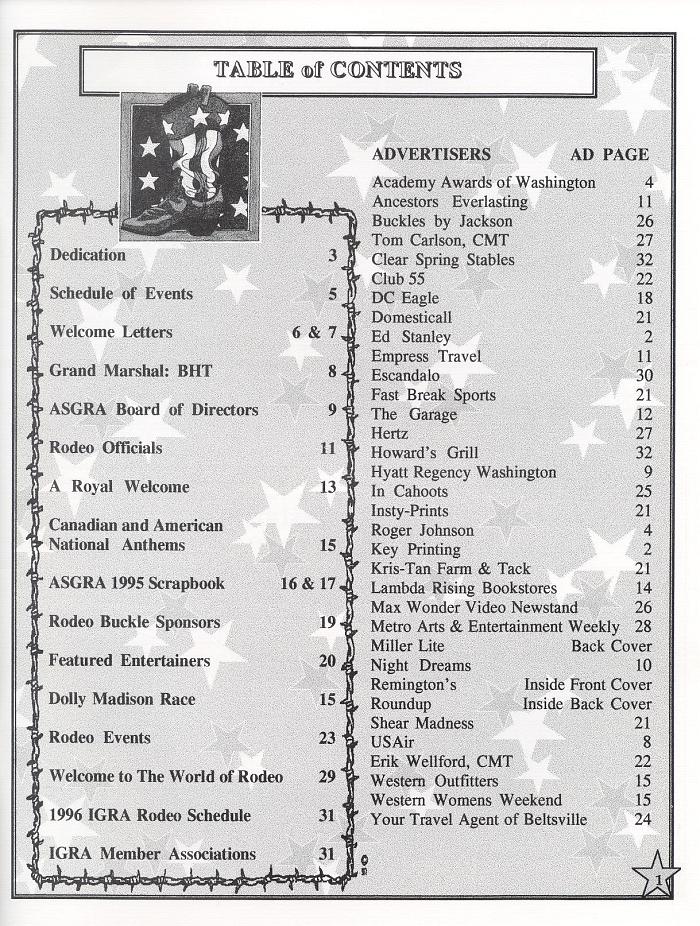
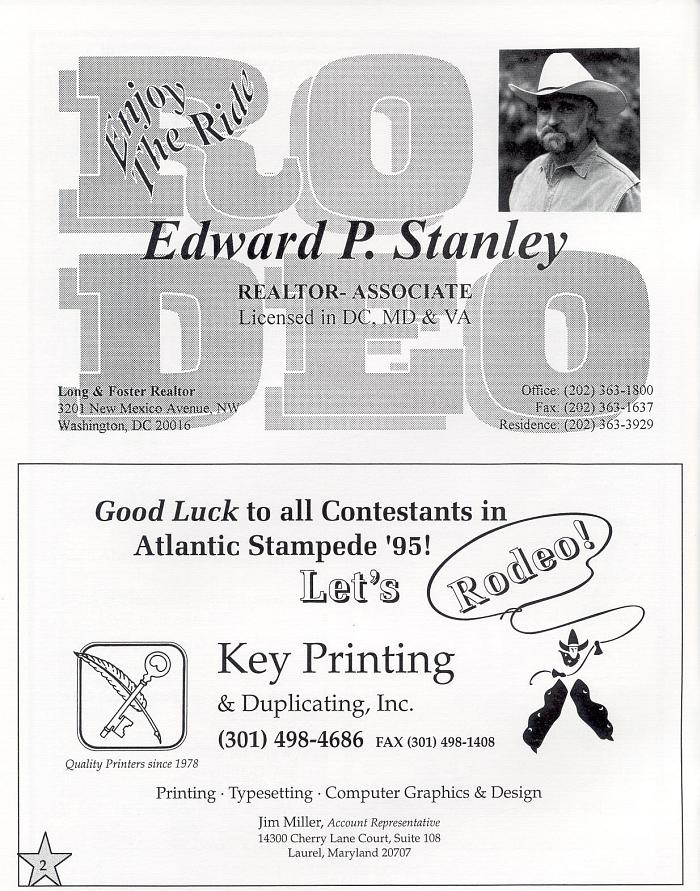
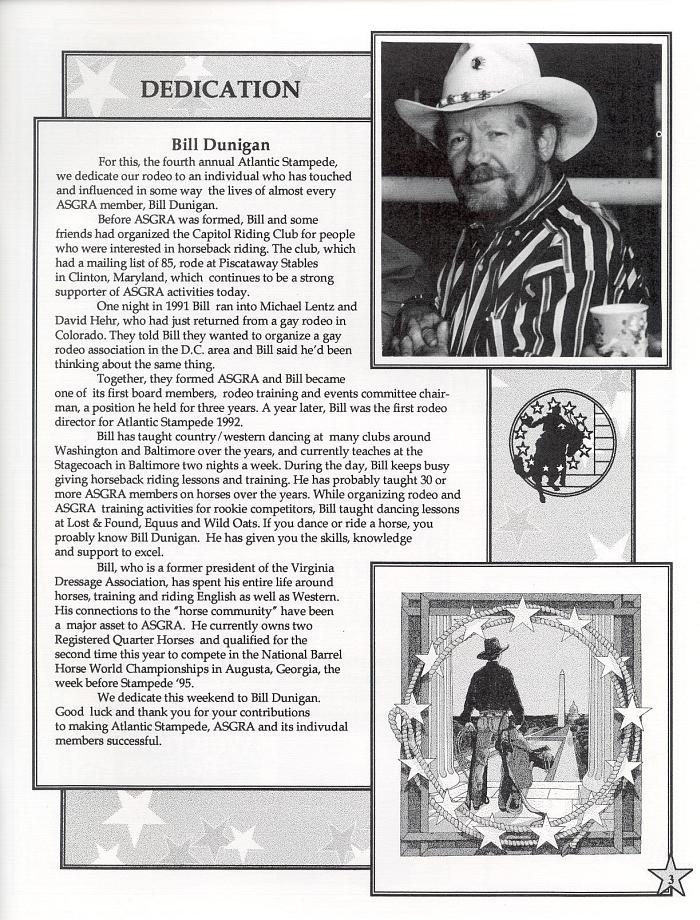
Bill D.
For this, the fourth annual Atlantic Stampede, we dedicate our rodeo to an individual who has touched and influenced in some way the lives of almost every ASGRA member, Bill D.
Before ASGRA was formed, Bill and some friends had organized the Capitol Riding Club for people who were interested in horseback riding. The club, which had a mailing list of 85, rode at Piscataway Stables in Clinton, Maryland, which continues to be a strong supporter of ASGRA activities today.
One night in 1991 Bill ran into Michael Lentz and David Hehr, who had just returned from a gay rodeo in Colorado. They told Bill they wanted to organize a gay rodeo association in the D.C. area and Bill said he'd been thinking about the same thing.
Together, they formed ASGRA and Bill became one of its first board members, rodeo training and events committee chairman, a position he held for three years. A year later, Bill was the first rodeo director for Atlantic Stampede 1992.
Bill has taught country / western dancing at many clubs around Washington and Baltimore over the years, and currently teaches at the Stagecoach in Baltimore two nights a week. During the day, Bill keeps busy giving horseback riding lessons and training. He has probably taught 30 or more ASGRA members on horses over the years. While organizing rodeo and ASGRA training activities for rookie competitors, Bill taught dancing lessons at Lost & Found, Equus and Wild Oats. If you dance or ride a horse, you probably know Bill D. He has given you the skills, knowledge and support to excel.
Bill, who is a former president of the Virginia Dressage Association, has spent his entire life around horses, training and riding English as well as Western. His connections to the "horse community" have been a major asset to ASGRA. He currently owns two Registered Quarter Horses and qualified for the second time this year to compete in the National Barrel Horse World Championships in Augusta, Georgia, the week before Stampede '95.
We dedicate this weekend to Bill D. Good luck and thank you for your contributions to making Atlantic Stampede, ASGRA and its individual members successful.
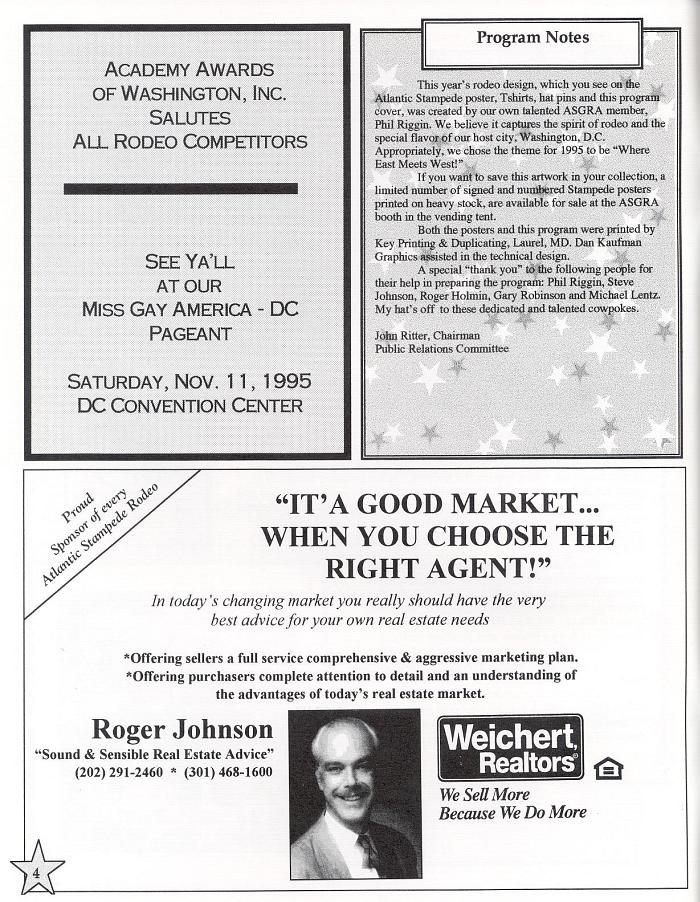
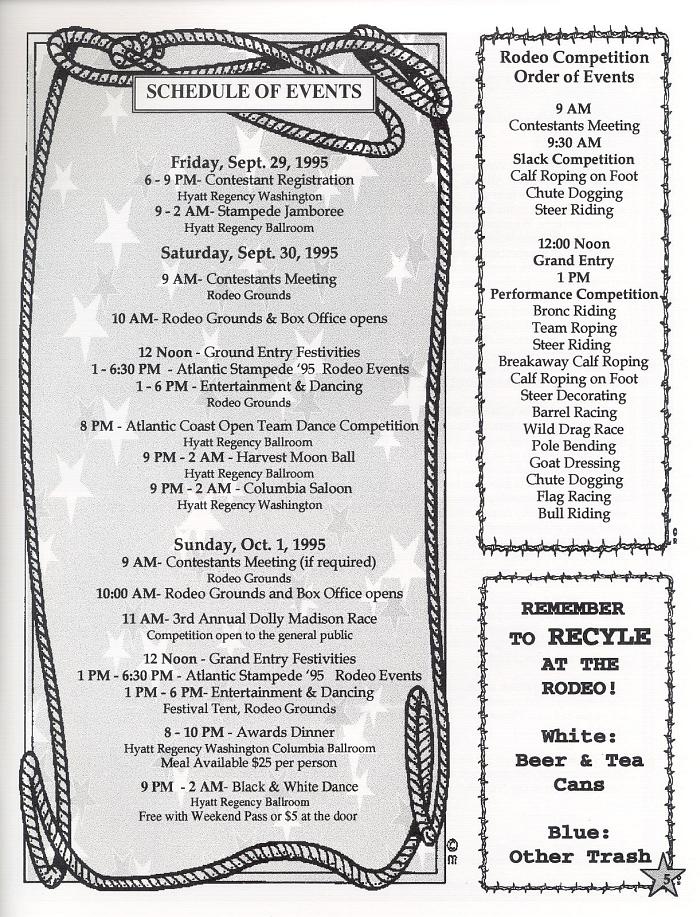
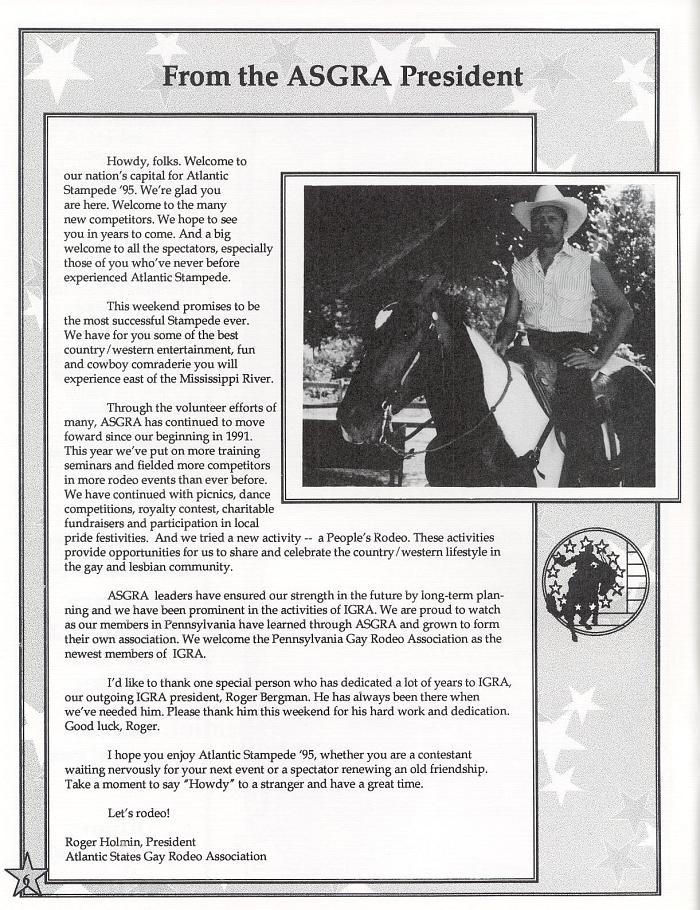
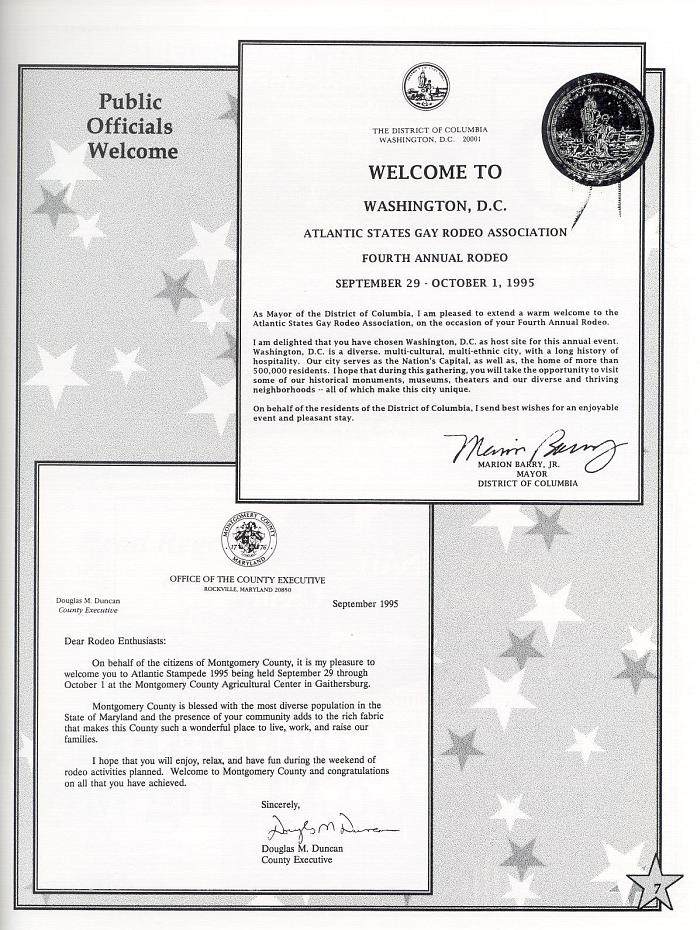

Grand Marshal: BHT (Brother Help Thyself)
ASGRA is pleased to honor as Grand Marshal of this year's rodeo Brother Help Thyself (BHT), the nation's first united gay and lesbian fund for health, cultural and social service organizations. BHT formed in 1978, when traditional community funding sources such as United Way were not available to support gay and lesbian groups.
The Capital Area Board of Leather/Levi Motorcycle Cubs took matters into their own hands and founded BHT. BHT's first fund drive was successful in saving the Washington DC Men's VD Clinic, which diversified and grew into what has become one of the nation's largest lesbian and gay health providers, Whitman Walker Clinic.
In the past 18 years, the need for support and funding organizations has grown. Over that time, BHT has raised and distributed about three-quarters of a million dollars. With the onslaught of AIDS in 1981, BHT was quick to recognize the crisis and began work to overcome it. BHT now funds both gay and lesbian organizations and AIDS service providers in the Baltimore Washington area.
The 11 member clubs of BHT are: Academy Awards of Washington, Atlantic States Gay Rodeo Association, Centaur MC, COMMAND, The Defenders LL, Fall Festival Association, Highwaymen TNT, Lost Angels, Shipmates Cub of Baltimore, Spartan MC and Trident International D.C. Hall.
In 1995, BHT's main support continues to be the contributions of individual donors through direct contributions or through the United Way or Combined Federal Campaign. The levi/leather clubs of Washington and Baltimore provide substantial support during the annual fall fund drive.
BHT is hosting a booth this weekend at Atlantic Stampede in the vending tent. Please drop by to congratulate them for their past success and offer your support to their continuing efforts.
BHT website
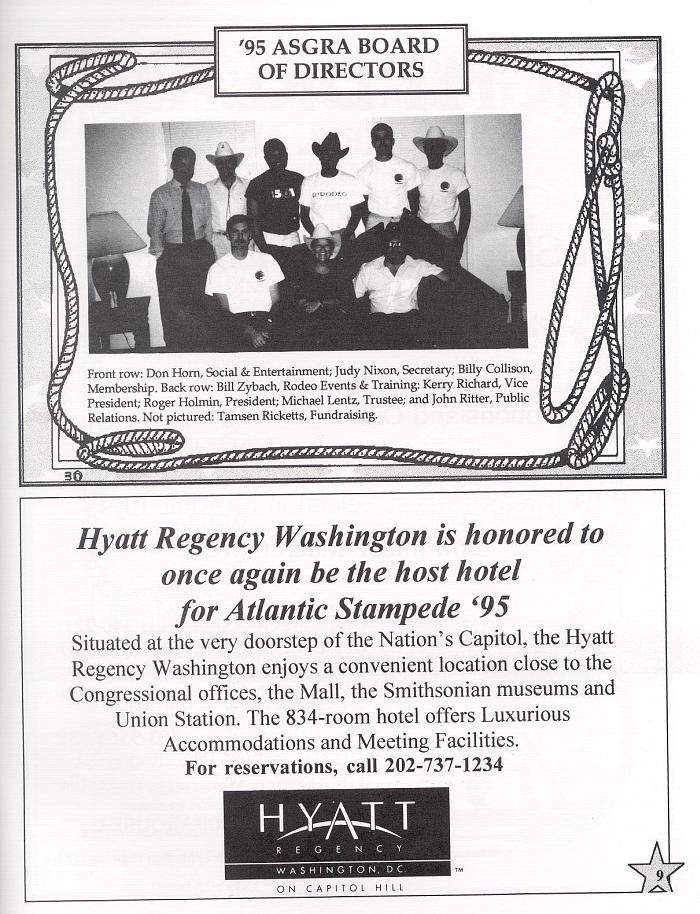
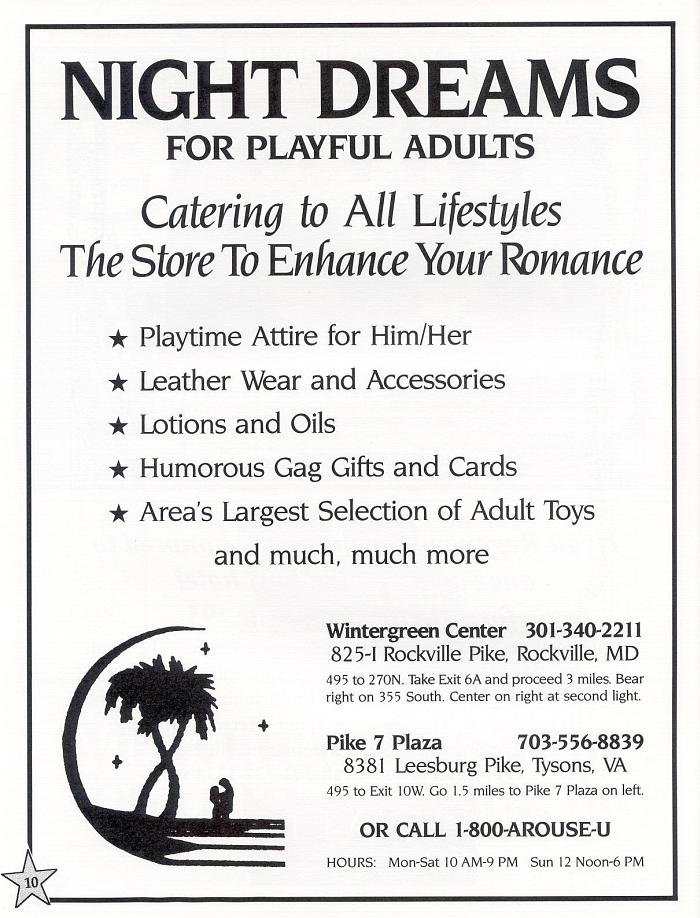
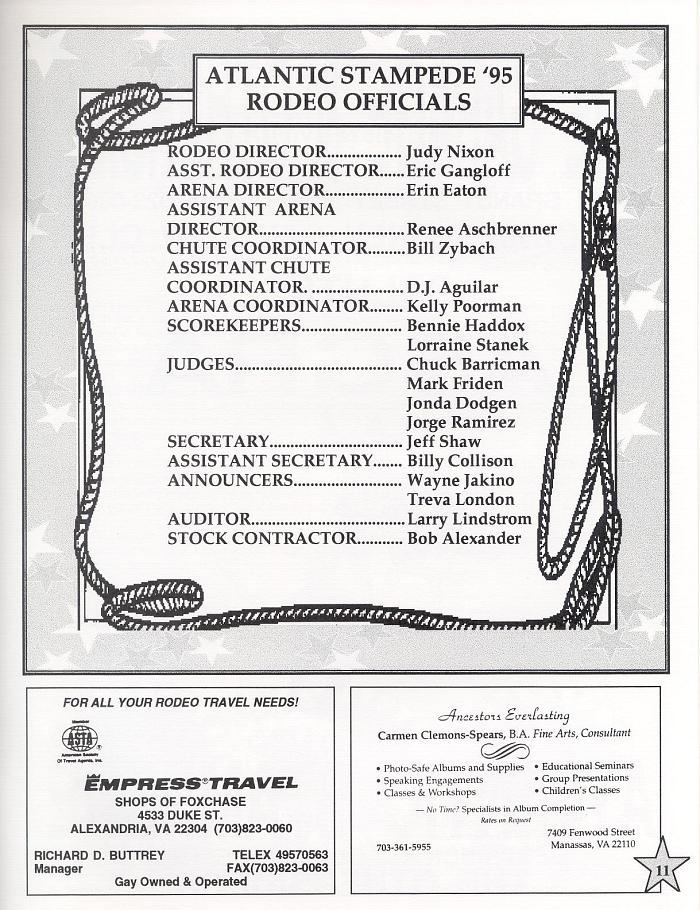
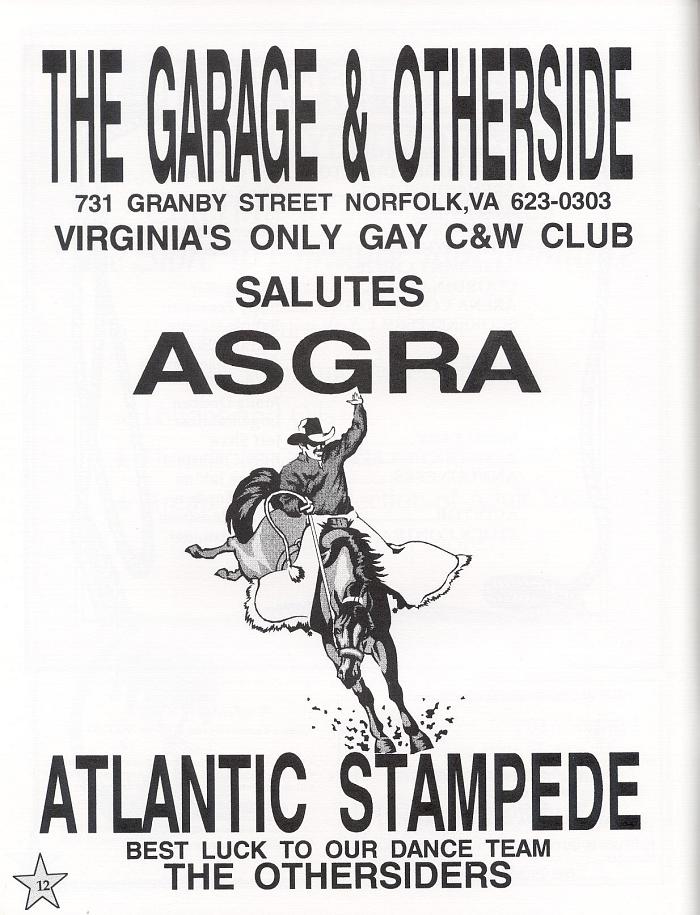
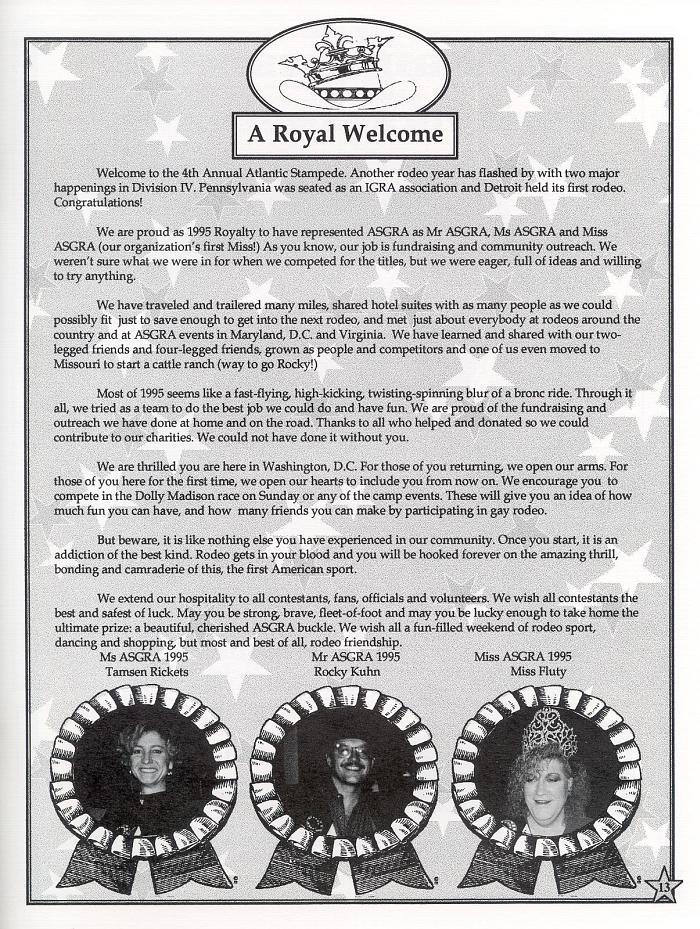
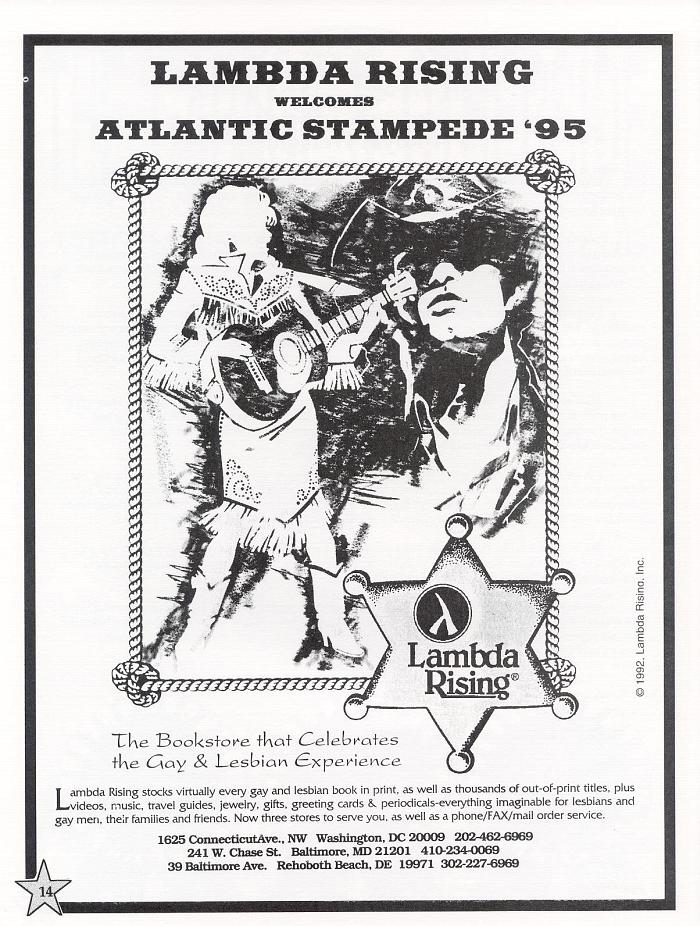
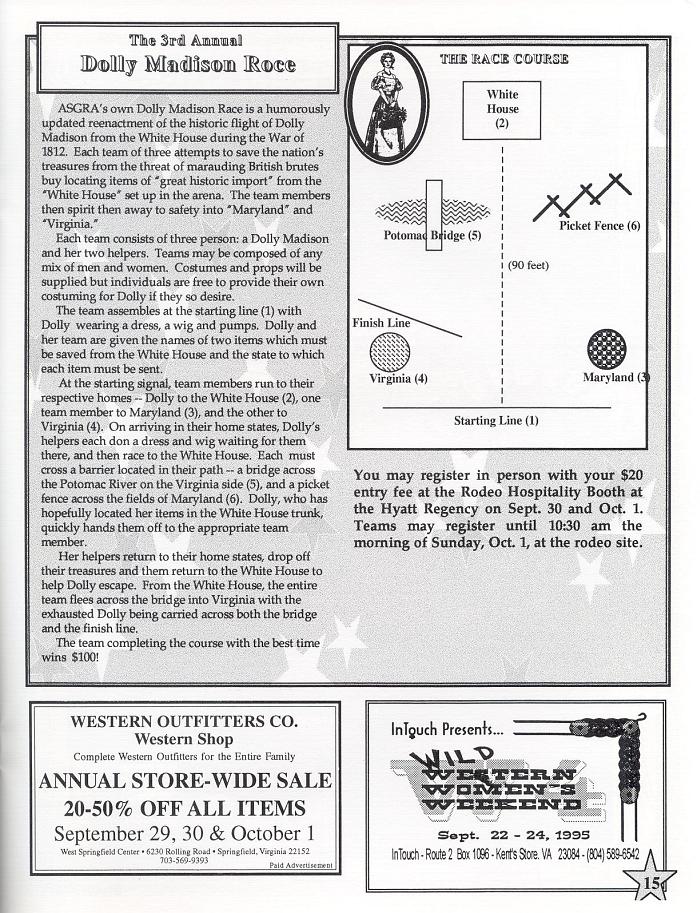



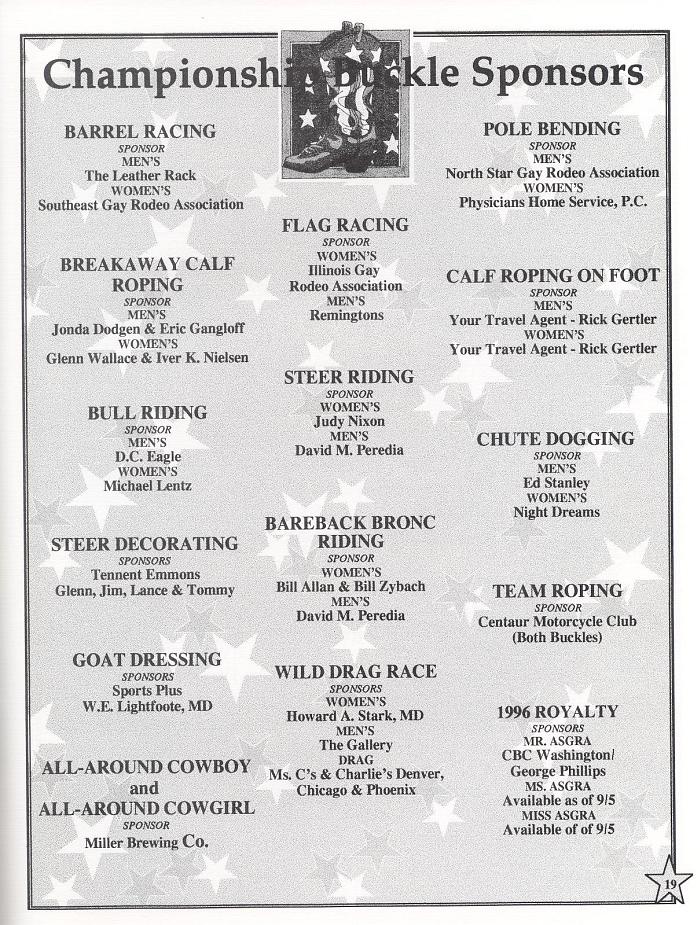
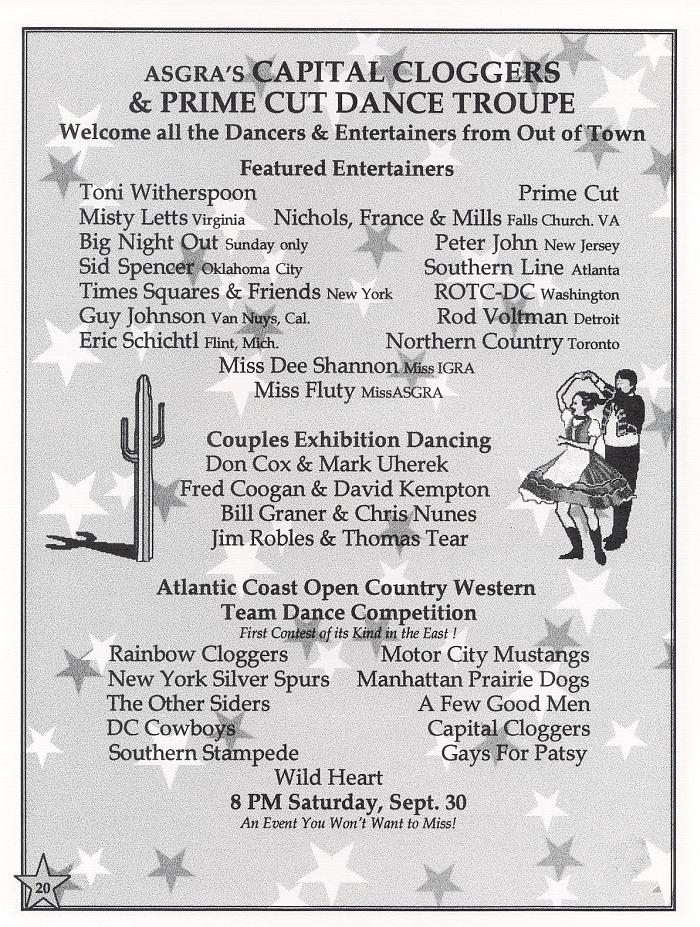
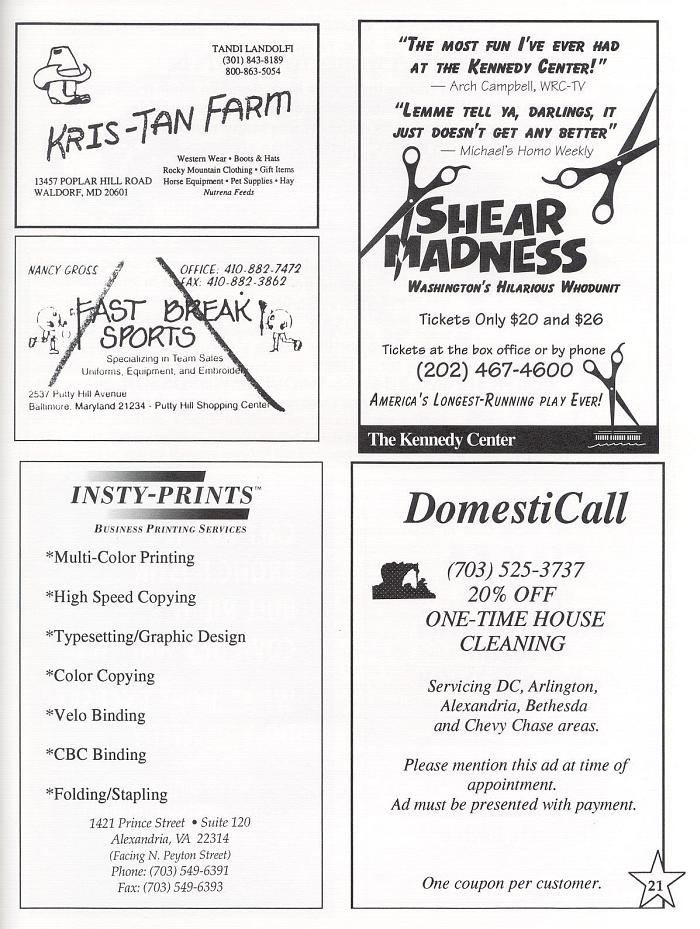
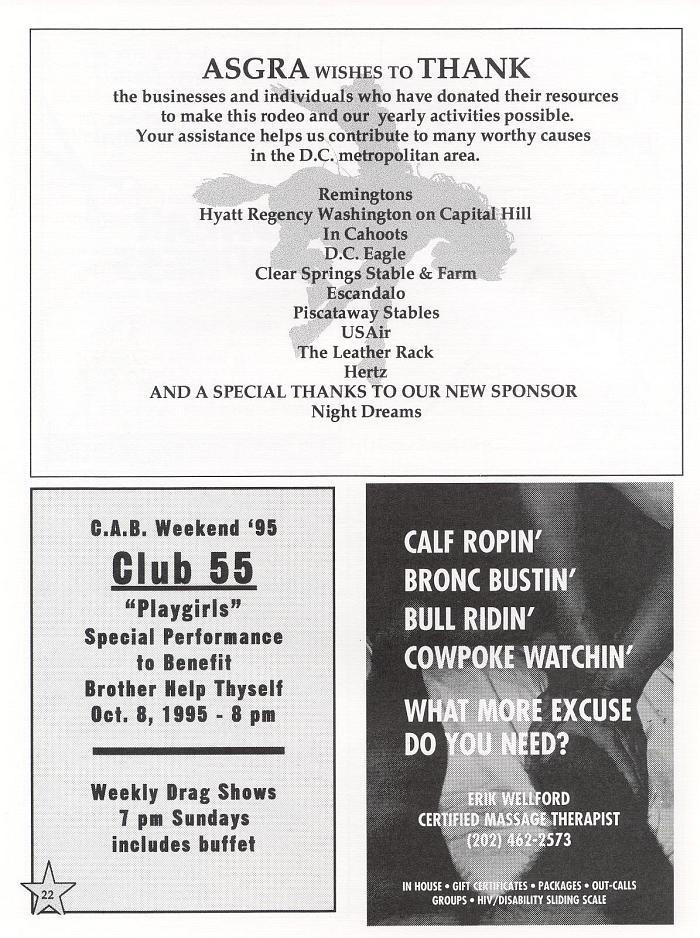
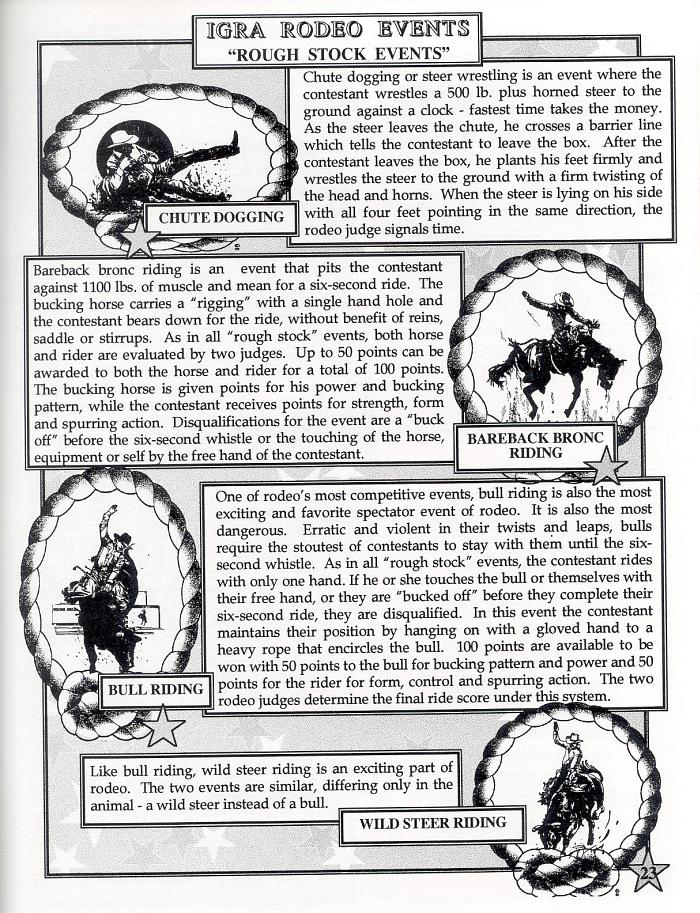
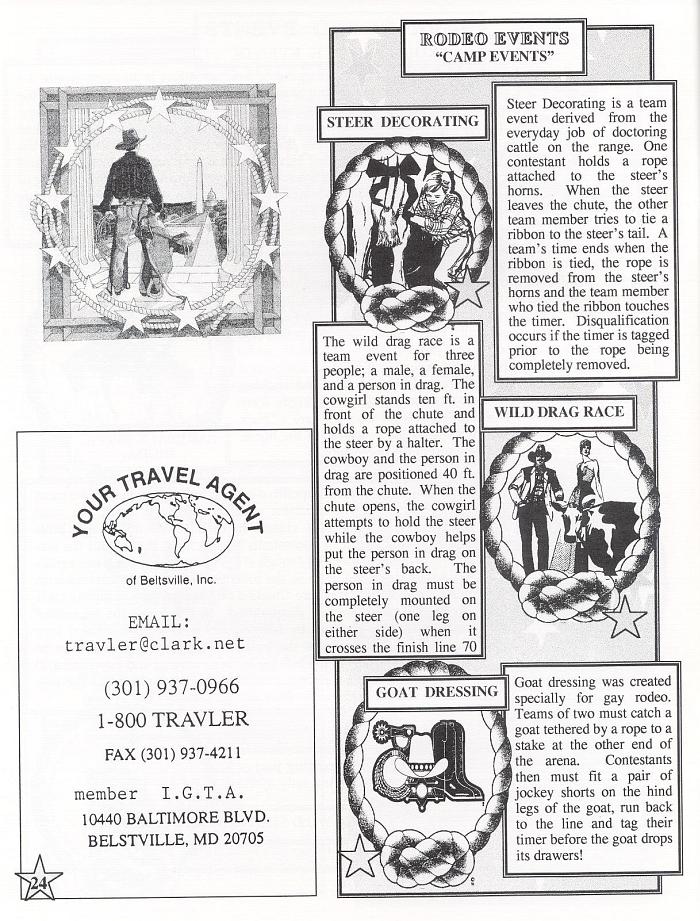
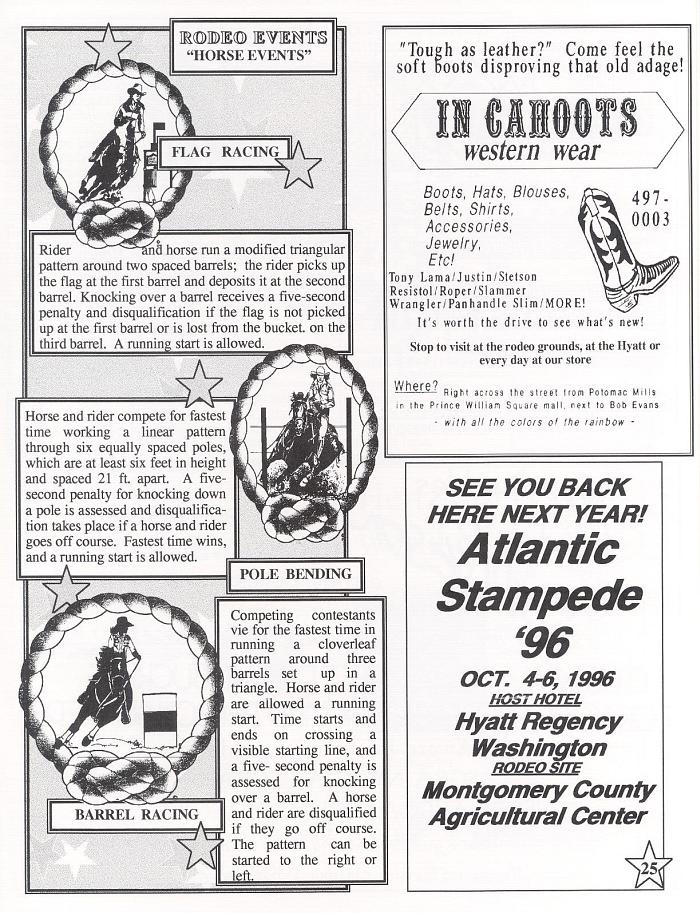
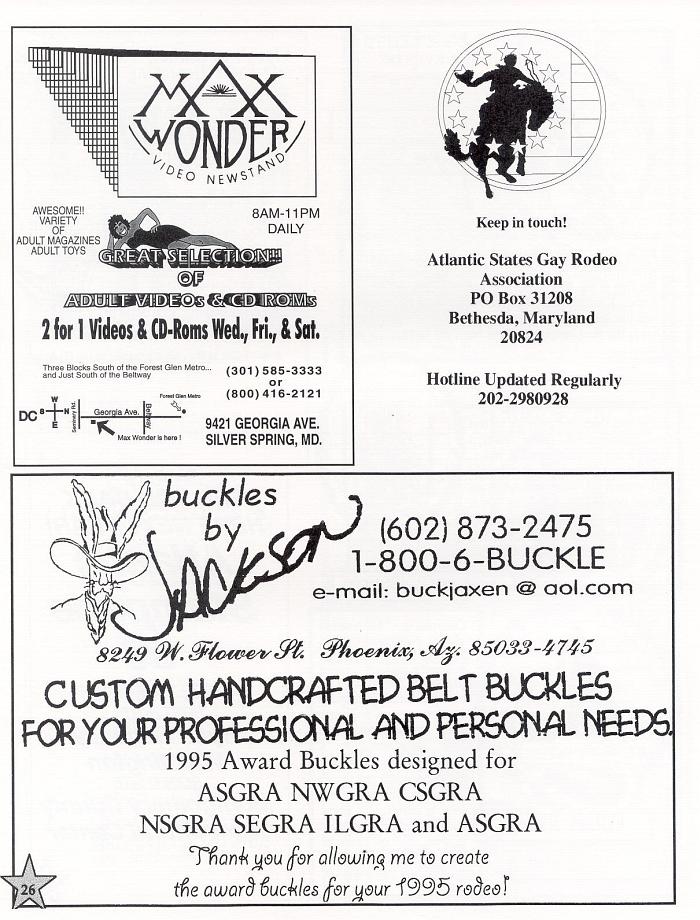
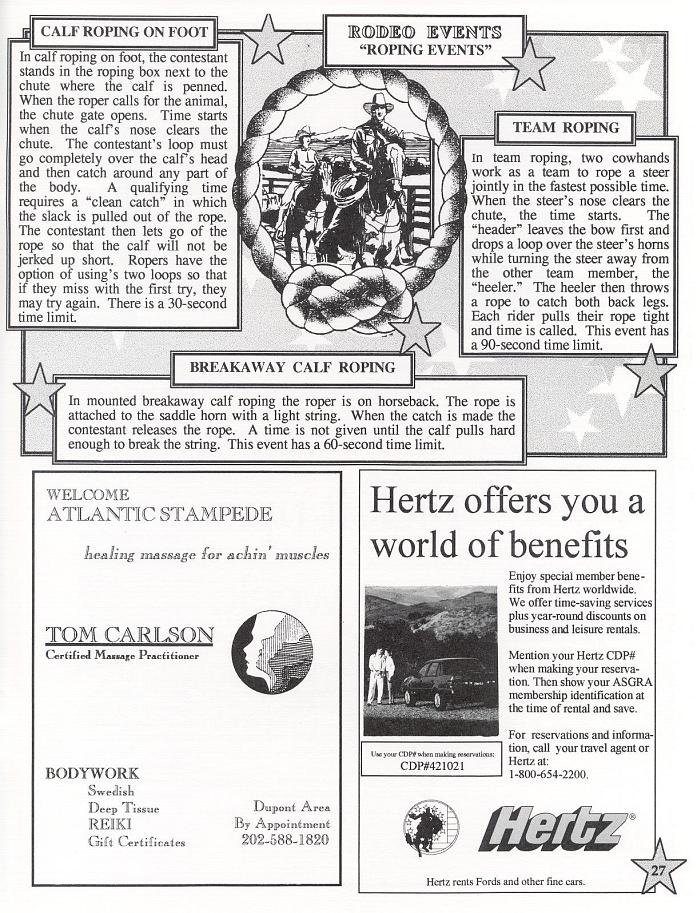
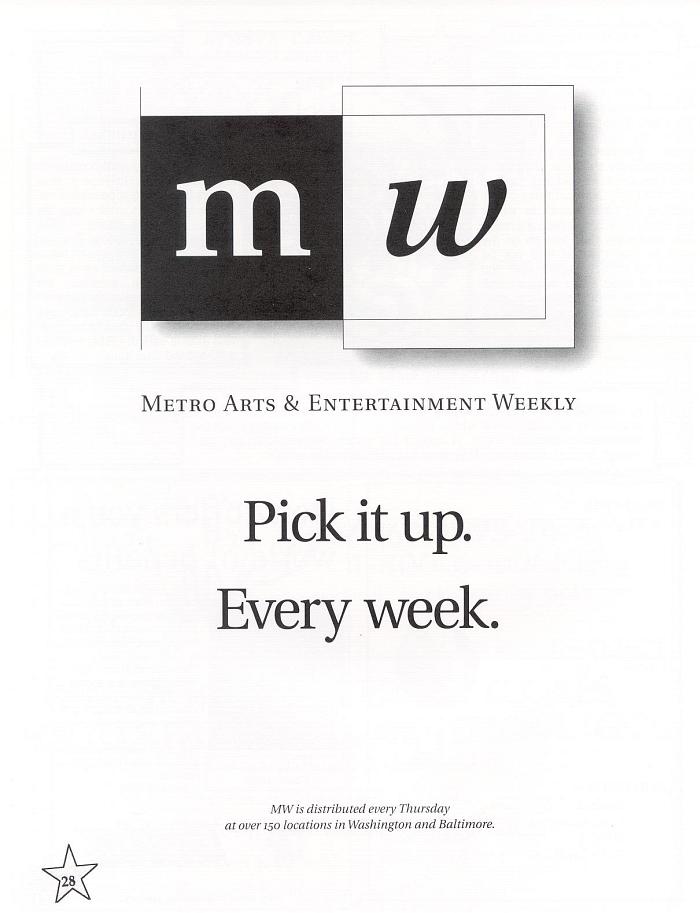
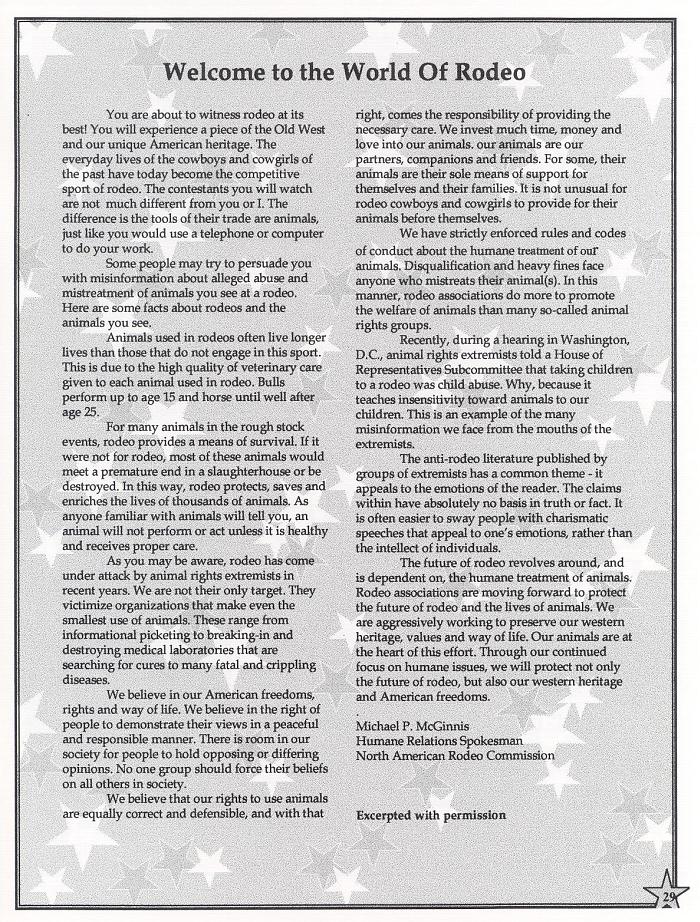
Welcome to the World Of Rodeo
You are about to witness rodeo at its best! You will experience a piece of the Old West and our unique American heritage. The everyday lives of the cowboys and cowgirls of the past have today become the competitive sport of rodeo. The contestants you will watch are not much different from you or I. The difference is the tools of their trade are animals, just like you would use a telephone or computer to do your work.
Some people may try to persuade you with misinformation about alleged abuse and mistreatment of animals you see at a rodeo. Here are some facts about rodeos and the animals you see.
Animals used in rodeos often live longer lives than those that do not engage in this sport. This is due to the high quality of veterinary care given to each animal used in rodeo. Bulls perform up to age 15 and horses until well after age 25.
For many animals in the rough stock events, rodeo provides a means of survival. If it were not for rodeo, most of these animals would meet a premature end in a slaughterhouse or be destroyed. In this way, rodeo protects saves and enriches the lives of thousands of animals. As anyone familiar with animals will tell you, an animal will not perform or act unless it is healthy and receives proper care.
As you may be aware, rodeo has come under attack by animal rights extremists in recent years. We are not their only target. They victimize organizations that make even the smallest use of animals. These range from informational picketing to breaking-in and destroying medical laboratories that are searching for cures to many fatal and crippling diseases.
We believe in our American freedoms, rights and way of life. We believe in the right of people to demonstrate their views in a peaceful and responsible manner. There is room in our society for people to hold opposing or differing opinions. No one group should force their beliefs on all others in society.
We believe that our rights to use animals, are equally correct and defensible, and with that right, come the responsibility of providing the necessary care. We invest much time, money and love into our animals. Our animals are our, partners, companions and friends. For some, their animals are their sole means of support for themselves and their families. It is not unusual for rodeo cowboys and cowgirls to provide for their animals before themselves.
We have strictly enforced rules and codes of conduct about the humane treatment of our animals. Disqualification and heavy fines face anyone who mistreats their animal(s). In this manner, rodeo associations do more to promote the welfare of animals than many so-called animal rights groups.
Recently, during a hearing in Washington, D.C., animal rights extremists told a House of Representatives Subcommittee that taking children, to a rodeo was child abuse. Why, because it, teaches insensitivity toward animals to our children. This is an example of the many misinformation we face from the mouths of the extremists.
The anti-rodeo literature published by groups of extremists has a common theme - it appeals to the emotions of the reader. The claims within have absolutely no basis in truth or fact. It is often easier to sway people with charismatic speeches that appeal to one's emotions, rather than the intellect of individuals.
The future of rodeo revolves around, and is dependent on, the humane treatment of animals. Rodeo associations are moving forward to protect the future of rodeo and the lives of animals. We are aggressively working to preserve our western heritage, values and way of life. Our animals are at the heart of this effort. Through our continued focus on humane issues, we will protect not only the future of rodeo, but also our western heritage and American freedoms.
Michael P. McGinnis
Humane Relations Spokesman
North American Rodeo Commission
Excerpted with permission
